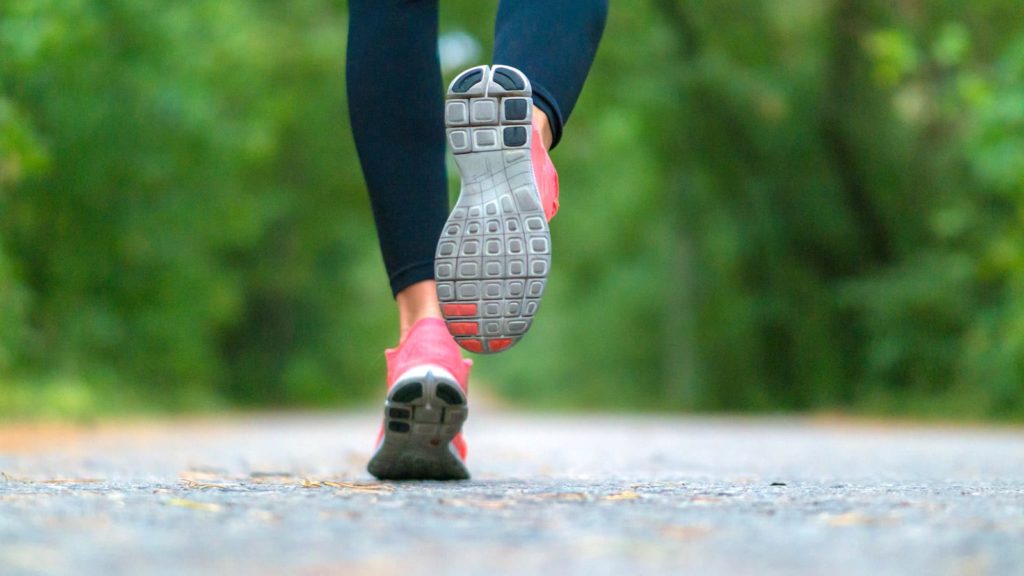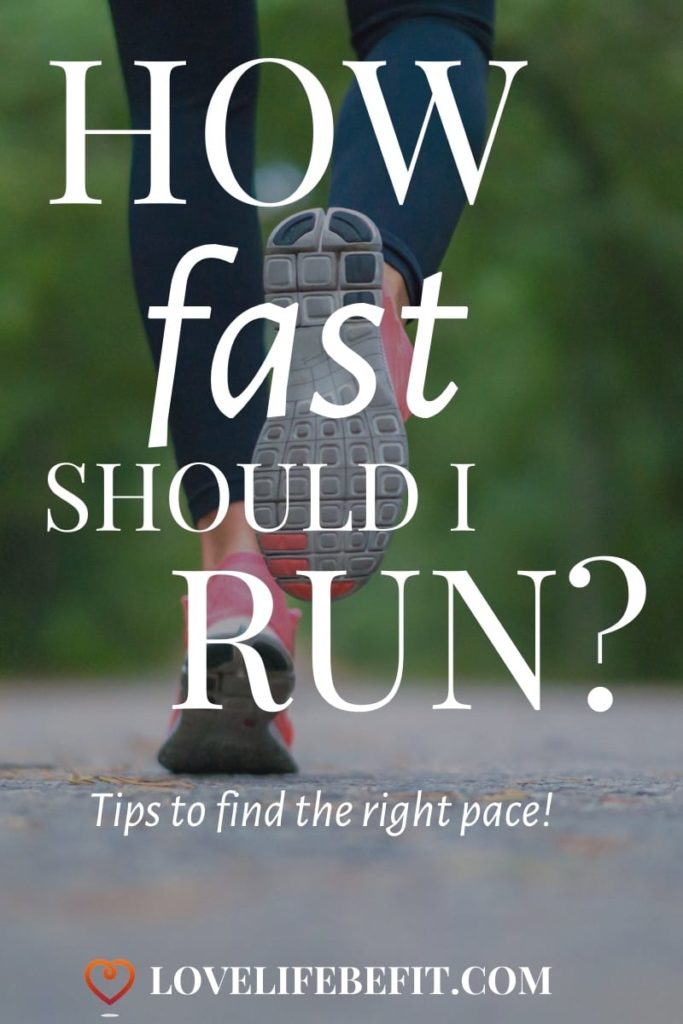Tips For Beginner Runners: How Fast Should I Run
There’s no getting away from it. Running can be very competitive. I don’t mean everyone’s trying to be the next Usain Bolt but the question on most beginner lips is “How fast should I run?”
There’s always the temptation to compare yourself with your brother, the guy at work who just started running, your neighbor, or the woman who just left you for dead running down the street – just about everyone.
Stop right there. Read on to find the answer to “How fast should I run”.

Running Pace For Beginners
These tips will help you find the right pace when you first start running:
#1 It’s not about being competitive
When you’ve just started running you’re building a runner’s body. It takes time! Those muscles need to strengthen and become more efficient.
A few months ago, this body of yours was happily hanging out on the couch. Now you’re making it run and everything aches. Push your body too hard at this point and it’s going to end in tears and injury. Being competitive can come later.
#2 Make sure you can talk when you run
A good way to make sure you’re running at the right pace is to check you can talk and run at the same time. That’s the best definition of an easy-running pace. It’s the starting point for most beginner running schedules.
It means you can talk in complete sentences without gasping for breath. If all you can manage is yes or no answers, you’re running too fast.
Everybody’s easy pace is different. You may find you’re running with someone who’s happily chatting away and you can barely grunt out a few syllables.
Swallow your pride and slow down. It’s good to run with others but don’t let them push you too hard too soon.
#3 Everyone is different
When it comes to how fast should I run, everyone is unique. Age, weight, gender, and whether you’re already active in other sports, will all affect your running speed.
The good news is, as a beginner runner, the only way is up. When it comes to running, most people are competing against themselves. Satisfaction and enjoyment come from improving. There will always be better runners yet you can always compete against yourself.
#4 Easy Paced Runs Help You Burn Body Fat
Worried that you’re not running fast enough? Relax. Those easy-paced runs are the most efficient way to burn stored body fat.
Lower-intensity efforts burn a higher proportion of fat as fuel. As intensity increases, when you up your running pace, this proportion reduces – you burn a higher proportion of carbohydrates.
It’s not a straightforward trade-off. Running faster burns more calories overall, so you can find a fast-paced run actually burns more fat. A smaller proportion of a bigger total can be better than a larger proportion of a smaller total.
Just note that your easy-paced runs will still help you reach your body weight goals.
#5 It’s Okay To Adopt A Run/Walk Pace
When you’re a beginner runner, there’s no shame in taking a walking break. There’s no shame even if you’re an experienced runner!
If you find you can’t keep up a conversation while running, try alternating running with fast-paced walking. It’s better to take walking breaks than labor along at too fast a pace.
Switching to walking is also good if you find your running form is starting to suffer. Long slow runs as a new runner can often leave you struggling to maintain your form. Follow these tips to maintain a good running style when you start to feel tired.
#6 When To Run Faster
Most new runners will find themselves naturally running faster as they turn into more efficient running machines. As your body gets stronger, you’ll feel the urge to up the pace.
Try adding in short bursts of speed or find a few hills to run up. Mix up your training with short fast runs where you can only manage to gasp out a few words.
Just make sure you alternate faster runs with easy running days to give your body time to recover. The mantra as a new runner is don’t overdo it.
It takes time to become a better runner. Be patient. Build those bursts of speed and faster-paced runs slowly.
#7 Don’t obsess over your 5K Time
A good time for 5K is considered to be sub-25 minutes by a lot of runners. That’s at a very respectable 8-minute-mile pace.
There are many reasons why a lot of beginner runners will be a long way off running at this pace. Factors such as age and gender will make a huge difference to your running times. Don’t feel bad about your running because of some arbitrary “good time.
If you can run sub 25 minutes great. If your goal is sub 40 minutes, and it’s a good time for you, that’s also terrific. It’s your body and your running. Enjoy it, run regularly and you’ll keep on improving.
Thoughts From Love Life Be Fit
I hope these tips will help you stop fretting about “how fast should I run?” Comparing yourself with other runners, and being competitive, can come later when you’re more experienced to judge your body’s abilities. For now, enjoy your running! I’d love to hear how you’re getting on.






